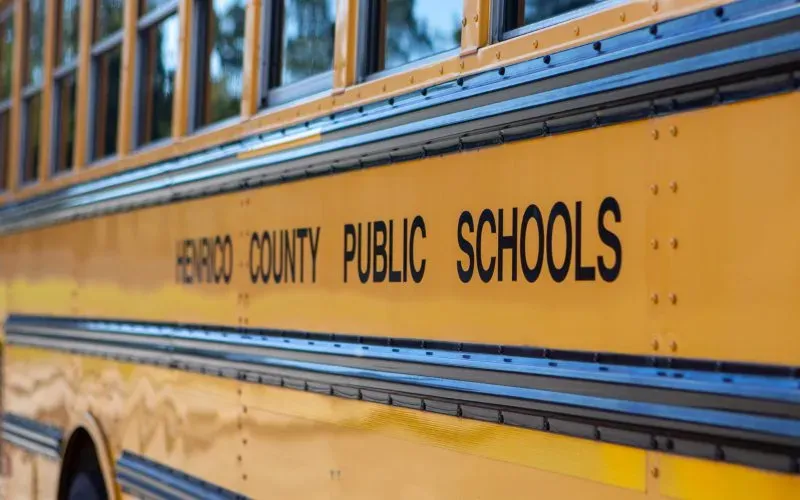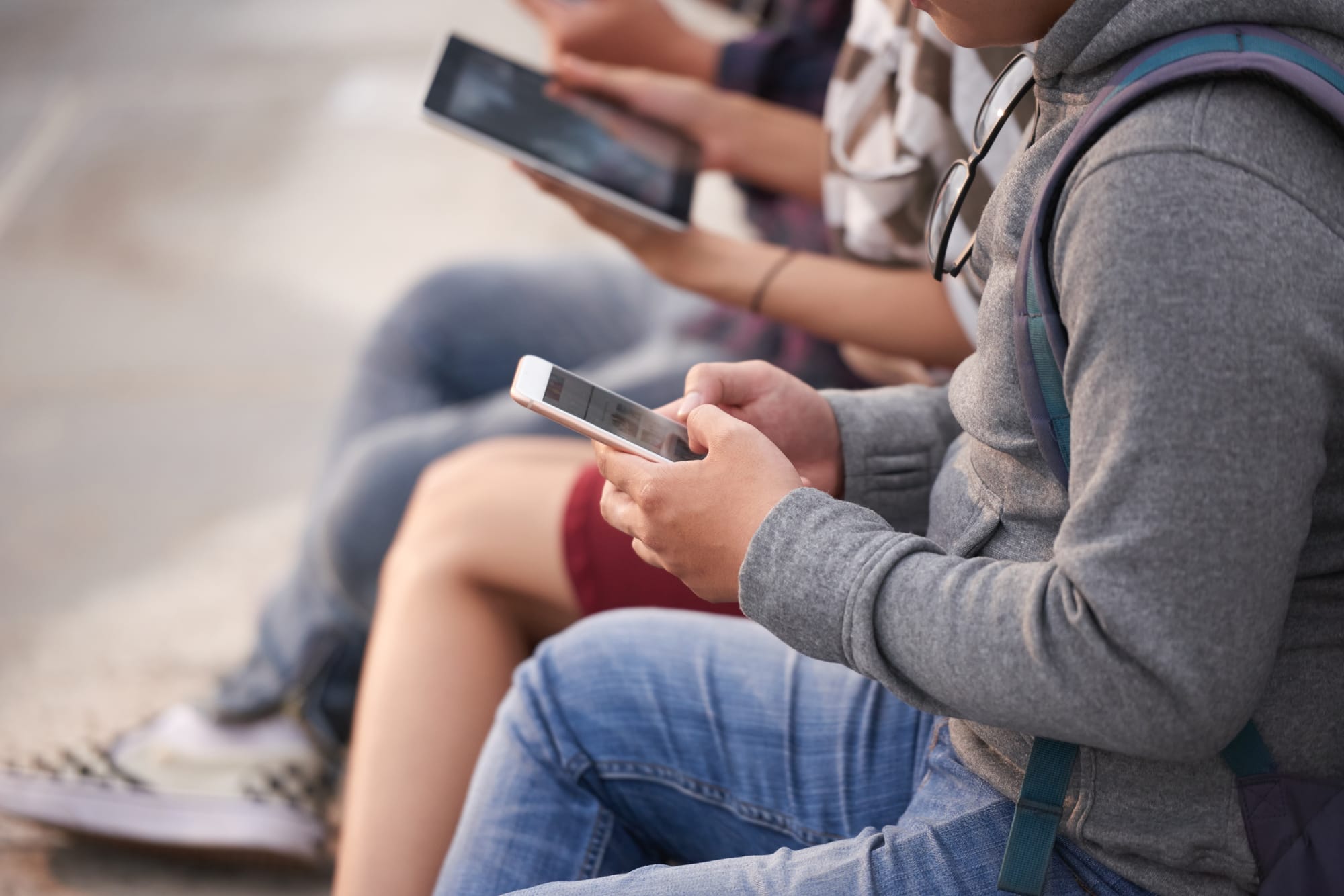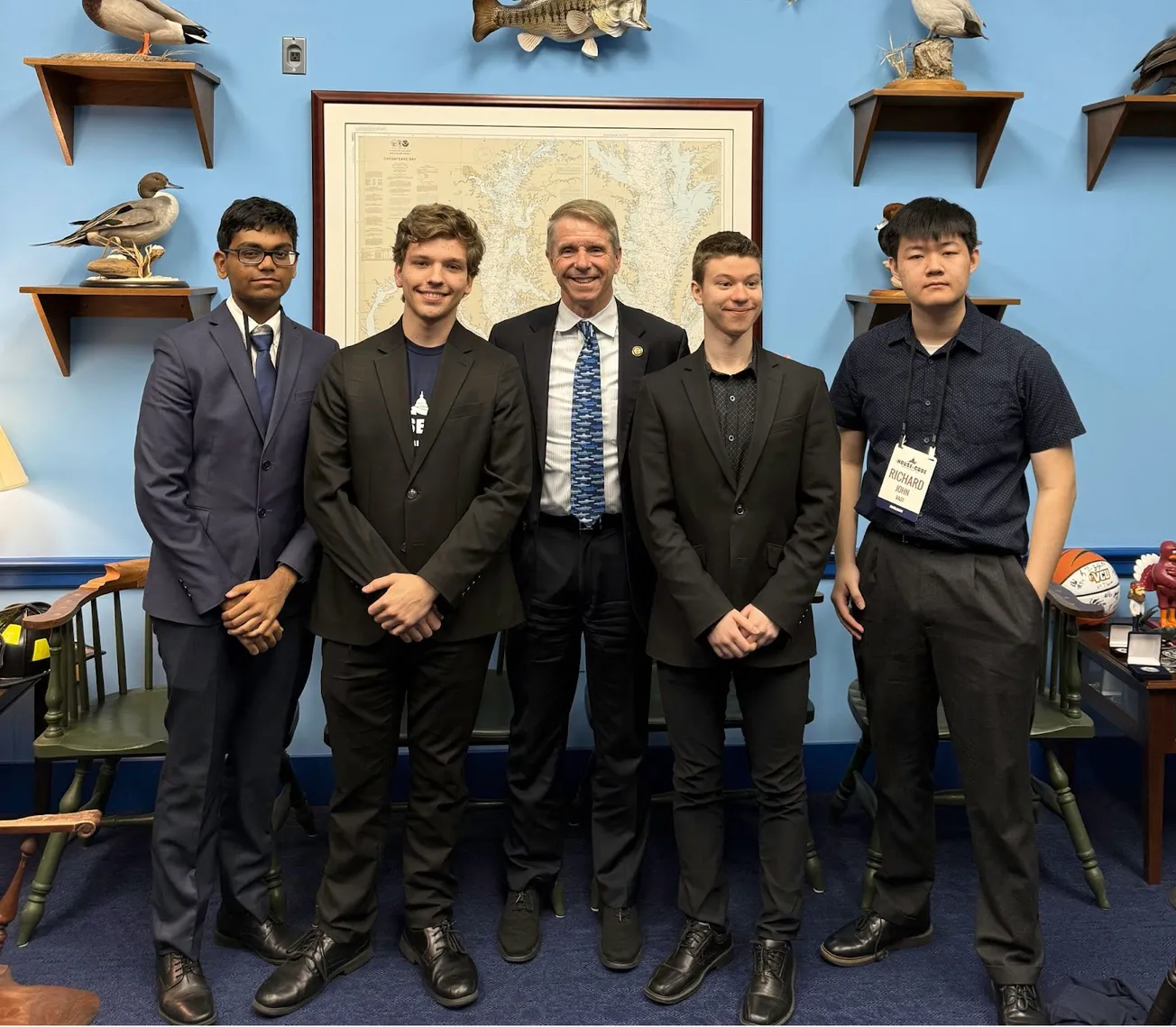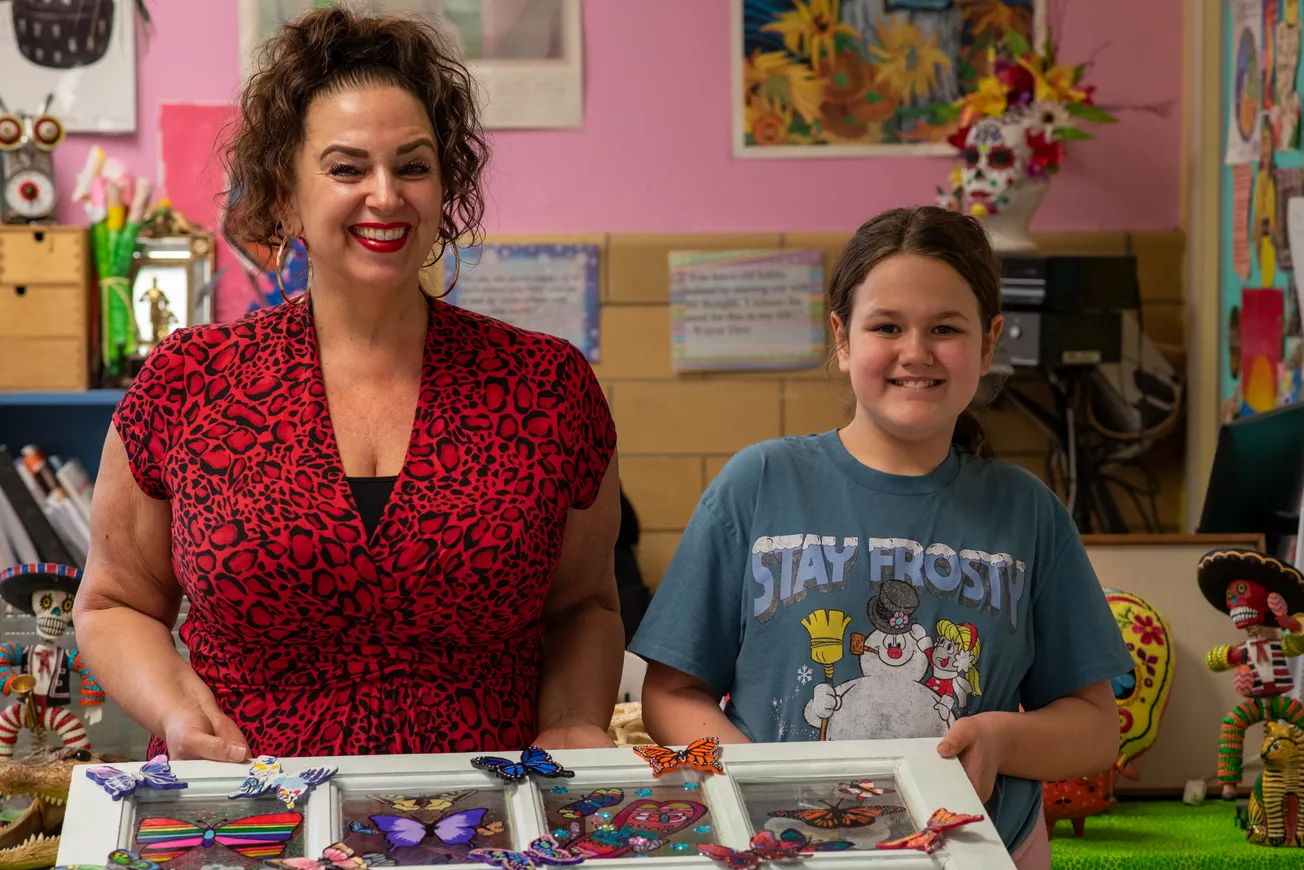Henrico schools’ proposed phone policy would require storage containers to be used in every class

Table of Contents
Proposed changes to Henrico Schools’ Code of Student Conduct would require secondary students to place their phones in storage containers during each class period and keep them in their backpacks during lunch and between classes.
Under Henrico’s current policy, middle and high school students must keep their phones away during class but can have them out during lunch and in-between classes. Teachers also have the choice to require students to place their phones in division-provided storage containers during class or allow them to keep them in their backpacks.
The proposed “bell-to-bell” phone ban, on which the Henrico School Board will vote June 12, garnered support from a majority of HCPS’ Teacher Advisory Committee and even some support from the Student Advisory Committee, according to William Noel, HCPS’ director of student support and disciplinary review. Almost 93% of TAC also supported requiring the use of storage containers.
Students and teachers from both committees also said that the current policy has benefited instruction and student engagement over the past school year, as did 80% of secondary teachers who completed an HCPS survey about the topic.
“Overwhelmingly, [the students] affirmed the positive impact that the enforcement of our cell phone policy has had over the last year,” said Noel. “We heard clearly from all stakeholders that the changes made this year have unequivocally impacted instruction and student engagement in a positive way.”
All middle and high school classrooms were provided phone storage containers, either phone pouches or lockbox containers, last school year, and teachers will be required to use them for the upcoming school year if the new policy passes, said HCPS spokesperson Eileen Cox.
While the elementary phone policy, which restricts phones for the entire school day, would remain unchanged, a revision to the corresponding consequences would ban an elementary student from bringing their phone to school upon their fifth offense.
School board vice-chair Madison Irving (Three Chopt District) said he was “very supportive” of the proposed change, saying that the ban will minimize distractions and bad behaviors during school and may also encourage students to be less reliant on their phones outside of school.
“Cell phone use can be seen as a form of addiction. . . maybe we can help encourage a new class of young people to break a habit that I think all of us wish we didn’t have,” he said. “I think that will also lead to far less skipping, it’ll lead to less instances in restrooms, which we know behavioral instances occur and there are many.”

Push for stricter consequences
Irving, who is also a teacher at James River High School in Chesterfield, said that Chesterfield’s implementation of the bell-to-bell phone ban this past January has led to many improvements in his school building.
“I would say it’s been very positive building-wide,” he said. “I rarely see phones throughout the day, and that’s even during hallway changes where they have to keep them away and during lunchtime. . . so far we’re really succeeding in a way that I think students haven’t for a while.”
Consistent enforcement of the phone policy has been a challenge in Henrico over the past school year. Almost 60% of secondary teachers surveyed said they encountered phone-related issues either weekly or daily, and less than half of teachers said they used the storage containers.
“I think that there’s some laxness naturally with some people. . . one of the hardest things in enforcement is when a kid says, ‘Well, my other teacher doesn’t do this,’” Irving said. “When people don’t follow the policies as they’re supposed to be, it does undermine morale and it undermines the enforcement.”
Irving said HCPS should consider enforcing stricter consequences for students who violate the phone policy, such as requiring a student’s parent or guardian to pick up the phone upon the first offense.
“I think that we need to incentivize the behavior we want to see,” he said. “And if I’m a kid and I know that the first time I get my phone taken, my mom or my dad or my guardian’s going to have to come pick it up, and that may not be today, I’m going to think a lot harder about whether I’m going to do this or not.”
HCPS will not be able to enforce punishments such as suspensions or expulsions just for phone violations, Noel said, but if a student is being defiant to staff during a phone-related issue, that behavior could warrant an in-school suspension.
Exceptions to the bell-to-bell phone ban would be made for students with an Individualized Education Plan, Section 504 Plan, individualized health care plan, or Limited English Proficiency plan. Teachers and administrators would be made aware of which students had the exceptions and could therefore have their phones on them, said HCPS Superintendent Amy Cashwell.
Teachers detail rise in phone issues
Despite positive feedback from teachers on the survey, other teachers have reported consistent challenges with enforcing the current cell phone policy, taking to the school board’s online public forum to say how teachers have now become the “phone police.”
“It is a demoralizing process, quite frankly,” wrote Highland Springs High School teacher Daniel Trice about collecting students’ phones. “Students will lie, saying they have no phone or they will put an old phone in the box while keeping their active phone. It’s depressing to have students routinely lying as though it were nothing.”
“These children are addicted to the cellphones and are unable to even let it out of their hands, much less keep them off and put away,” wrote another high school teacher, who remained anonymous. “This makes it very hard for teachers because we are constantly catching them on the phones. . . It is a constant disruption and instead of teaching, I am playing the cell phone police.”
One school in the Tuckahoe District has collected over 1,000 phones from students over the past school year, according to school board chair Marcie Shea (Tuckahoe District).
Fairfield Middle School even enforced a temporary phone ban for the entire school day once students returned from spring break, after seeing phone issues as an increasing problem, and set a new requirement for parents to pick up confiscated phones instead of students.
Several teachers also reported a lack of clear communication from their school leaders on how to enforce the phone policy properly.
“I did not receive clear guidance on how to enforce it effectively, which has led to conflicts with students and, at times, with parents,” an anonymous teacher wrote. “Collecting and redistributing phones each day often takes 15-20 minutes of valuable class time – even more when there is resistance.”
Board member Kristi Kinsella (Brookland District) emphasized that HCPS leaders should ensure all schools get very clear and consistent information on the new phone policy if it is implemented, spelling out for staff how they should implement it and what their responsibilities will be.
“Staff have asked me, quite a number of them, for as much clarity and as much detail as possible,” Kinsella said. “They’d like even more clear language in the Student Code of Conduct.”
Teachers and board members also raised another issue: students switching from using their phones to instead misusing their division-provided laptops. One anonymous middle school teacher wrote that their students are easily able to bypass Securely, the educational software HCPS uses to block certain websites, and access movies, games, and even violent content during the school day.
“Middle school students are easily able to use ‘proxy servers’ to access violent gun-use gaming sites, have live video chats with strangers – with the use of the laptop camera, these strangers can see inside our classrooms. . . And use your imagination as to what else students are able to access on the HCPS-issued laptop,” the teacher wrote. “It’s just physically impossible to monitor every student computer during a lesson.”
Shea also emphasized the need for teachers to be equipped with enough support to address students misusing their laptops.
“We have Securely, we have a lot of things in place, but we know that our students are often smarter than we are and sometimes come up with workarounds,” she said. “We want to mitigate the distractions as a whole and not just move the problem elsewhere.”
Liana Hardy is the Citizen’s Report for America Corps member and education reporter. Her position is dependent upon reader support; make a tax-deductible contribution to the Citizen through RFA here.




